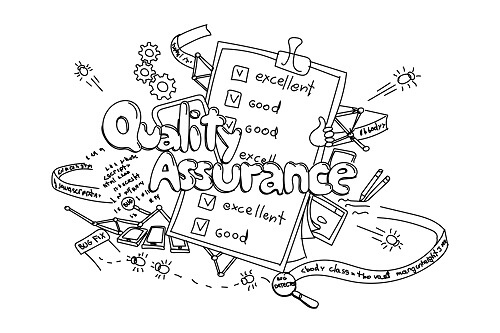
The Common QA Outsourcing Myths
by admin | May 15, 2019 | QA Outsourcing, Blog | 0 comments
Businesses trying to accomplish an ongoing task in QA in a competent manner often consider the option of outsourcing software testing. A trusted outsourcing partner can ensure that testing accelerates the software development process at the end of the development cycle, and enables a business to release quality software.
Despite the apparent advantages of outsourcing in terms of fast and proficient testing of software, businesses are sometimes wary of the prospect of QA outsourcing to a partner. The circumspection about outsourcing is linked to some myths that can discourage a business from using the testing expertise of an outsourcing partner. The common outsourcing myths – and the facts debunking those myths – have been discussed below.
MYTH: Outsourcing Software Testing can lead to Loss of Intellectual PropertyFact: The presumption of businesses that outsourcing can put them at the risk of losing Intellectual Property and confidential internal information is baseless. Even current and former employees of a company can share internal knowledge of the company with others. To ensure the protection of its trade secrets, a company can sign a Non-Disclosure Agreement (NDA) or confidentiality agreement with its outsourced partner. Such an agreement obligates the compliance of the outsourced partner with the strictest security measures, similar to a confidential in-house team.
MYTH: Outsourced Party may Gain Full Control of the Software Project
Fact: Businesses needlessly fear that software testing outsourcing will give a third party complete control of their software project. A Service Level Agreement with an outsourced partner can give the company the reassurance that the testing of its software by outside testers yields the desired outcome. The company can clearly outline the priorities with the test team through regular video conference calls and assess the progress of the team.

In addition, placing persons from the company as part of the core team, along with the vendor partner would keep the project in control. The company would be assured that the testers from the QA partner do not implement any feature improvements without seeking prior consent.
MYTH: Outsourcing Software Testing is Not Relevant in Agile and DevOps Environments
Fact: The emergence of Agile and DevOps has closely aligned the software development and testing processes. In particular, testing shifts left has become a core component of development. Although the execution of units tests in continuous integration and continuous delivery scenarios has somewhat eliminated the individual test role, testing skills are still required for the complex tests cases.

The QA outsource to a third party brings proficient testers to the testing process, thereby allowing a company to incorporate automation testing, performance testing, and security testing for ‘quality’ benefits.
MYTH: Outsourcing could Reduce Productivity and Hamper CommunicationFact: Some companies wrongly perceive that testers working for an outsourced partner can reduce productivity and hinder the communication process. In fact, outsourcing can bring about increased productivity because a company can hire skilled and experienced remote testers. In terms of communication with testers working from a different geographical area, important real-time communications are possible in the present times with the help of popular teleconference tools like Zoom and Skype, instant messaging services such as Slack, which any top Software Testing Services company would be proficient at using.
MYTH: Outsourced Partner may Not Understand Business Goals and ChallengesFact: For the outsourced partner, the success of the testing project from the business’ perspective is of utmost significance. Despite being a third party, a testing company can promptly get a clear understanding of the business goals and challenges. It can also gauge the unique needs of a business and design a befitting test plan for enhancing the software under testing. The skilled testers at an outsourced partner can quickly evaluate the software and make the necessary improvements to make it a high-quality product – the very basis of what they are trained to achieve.
MYTH: Only Large Business can benefit from Outsourcing
Fact: Fact: It is commonly believed that outsourcing is a viable option only for large businesses seeking to cut costs. The fact is that the advantages of outsourcing can also be availed by small and medium businesses (SMBs) and even emerging start-ups.

The testing services provided by an outsourced partner can be customized to the business requirements at a specific point of time. In addition, with the help of an outsourced partner, a business would have access to a number of testers who are deft at performing diverse and a wide range of tests rather than assigning the testing task to one in-house tester.
In Conclusion:
The myths surrounding the outsourcing of testing to a third party can make it difficult for a business to select between outsourcing and in-house testing. However, it is imperative for businesses to realize that the myths can be major deterrents towards their goals and they would miss benefitting from the outsourcing option. QA outsourcing can result in minimized management efforts, reduced infrastructure costs, fewer collaboration issues between in-house teams, improved integration cycle, and efficient time-to-market – connect with us for these and more benefits.





































